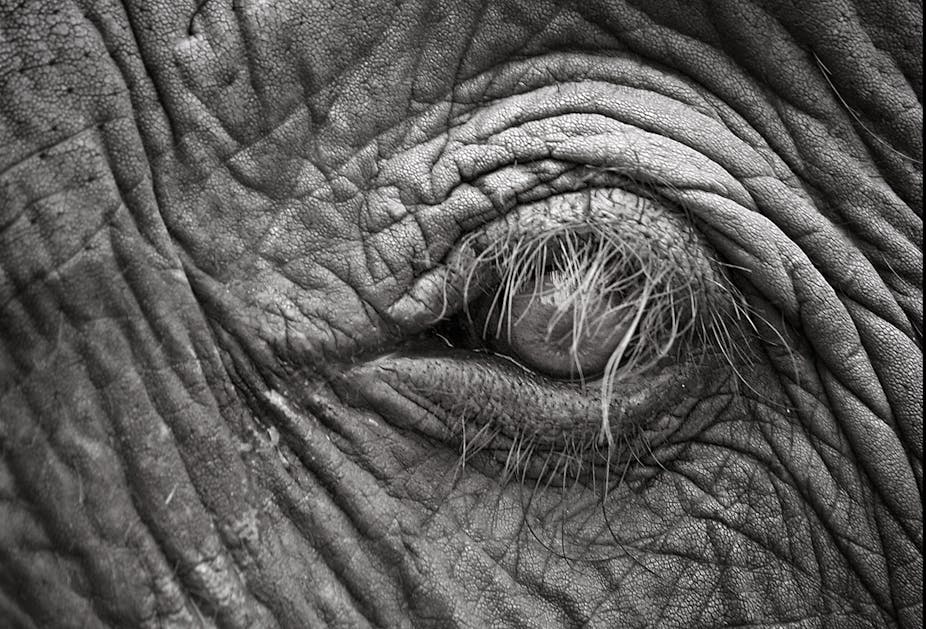An elephant that supposedly cried tears when it was being rescued from an abusive home where it had been captive for 50 years created much excitment on social media. The experience of being cut loose from the vicious-looking spikes and heavy chains that we see in the short video clip was one of intense emotion for Raju the elephant. This is not the first time that a story of a weeping elephant has done the rounds on the internet. Animals that seem to be behaving in human-like ways certainly generate great interest.
Humans usually cry for emotional reasons: pain, fear, sadness, or loneliness. So perhaps it is natural to interpret animal tears as having an emotional reason, too. However, scientists studying the underlying cognitive processes of animal behaviour have found no evidence to suggest that elephants, or any other species for that matter, have an emotional reason for producing tears.
There is no doubt at all that animals experience pain and suffering, and many show visible signs of distress in their behaviour. Another elephant – this one a new-born elephant calf called Zhuangzhuang certainly would have felt pain from its injuries, and intense distress at being attacked and separated from its mother. But there is no evidence for a connection between any emotions it may have been feeling and its streaming eyes.

A problem faced by those studying animal cognition is the intangible nature of emotion. How we might find out whether elephants, or any other animals, feel particular emotions, is not straightforward.
It is especially tempting to interpret an elephant’s tears as signs of emotion, more so than those of any other species. Elephants are known to show empathy for their group members: they protect and comfort others, retrieve and “babysit” calves, help elephants that need assistance with moving and remove spears and veterinary darts attached to others. Unlike any other species, they show intense interest in the bones and ivory of other dead elephants.

If we were to find evidence for a species that cries tears of sadness, the elephant would surely be one of the likely candidates. However, there is also a possible biological reason for why elephants are relatively frequently seen with streaming eyes – one that has little to do with emotions. Elephants have been found to lack tear ducts which in humans and other mammals would normally drain away the liquid which is secreted in the eye to flush out any debris.
Speculating on isolated anecdotes, such as those reported recently, does not contribute much to our understanding of animal emotions. That is not to say that their accumulated weight may not, in time, spark the investigations that eventually succeed in illuminating a very interesting and relevant issue. But the unhappy situation of Raju’s captivity is, with or without emotional tears, an issue that deserves attention. The conditions in which captive elephants live are not of lesser importance if they do not cry emotional tears. Elephants are sensitive, highly social and intelligent animals. If they are to be kept in captivity their physical, social and emotional well-being is entirely a human responsibility.
Next, read this: We’ve been looking at ant intelligence the wrong way

